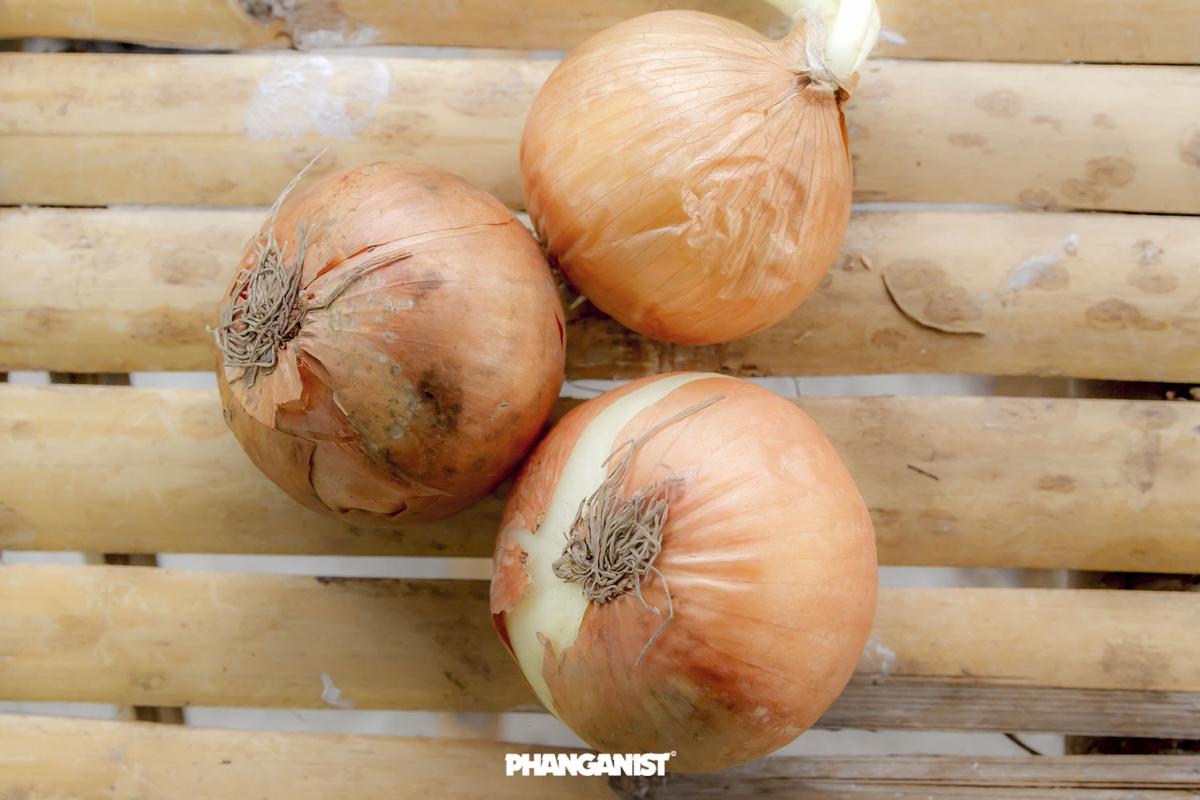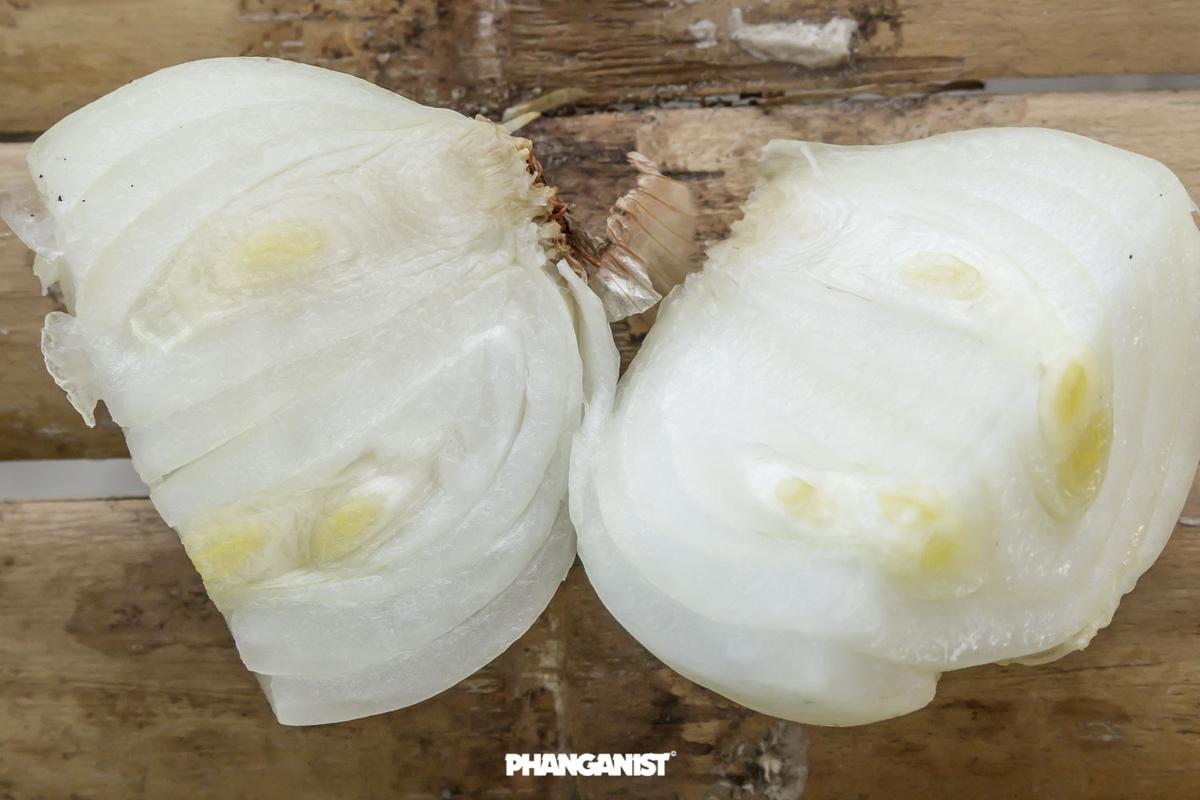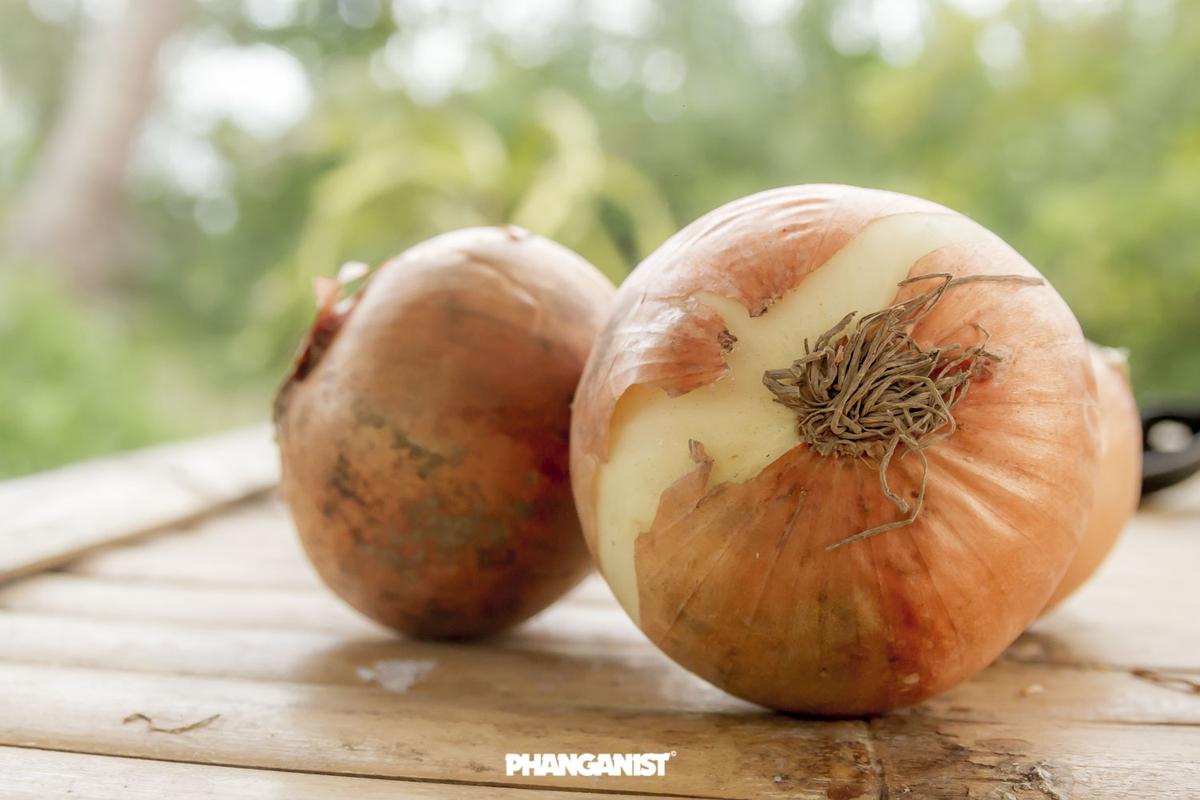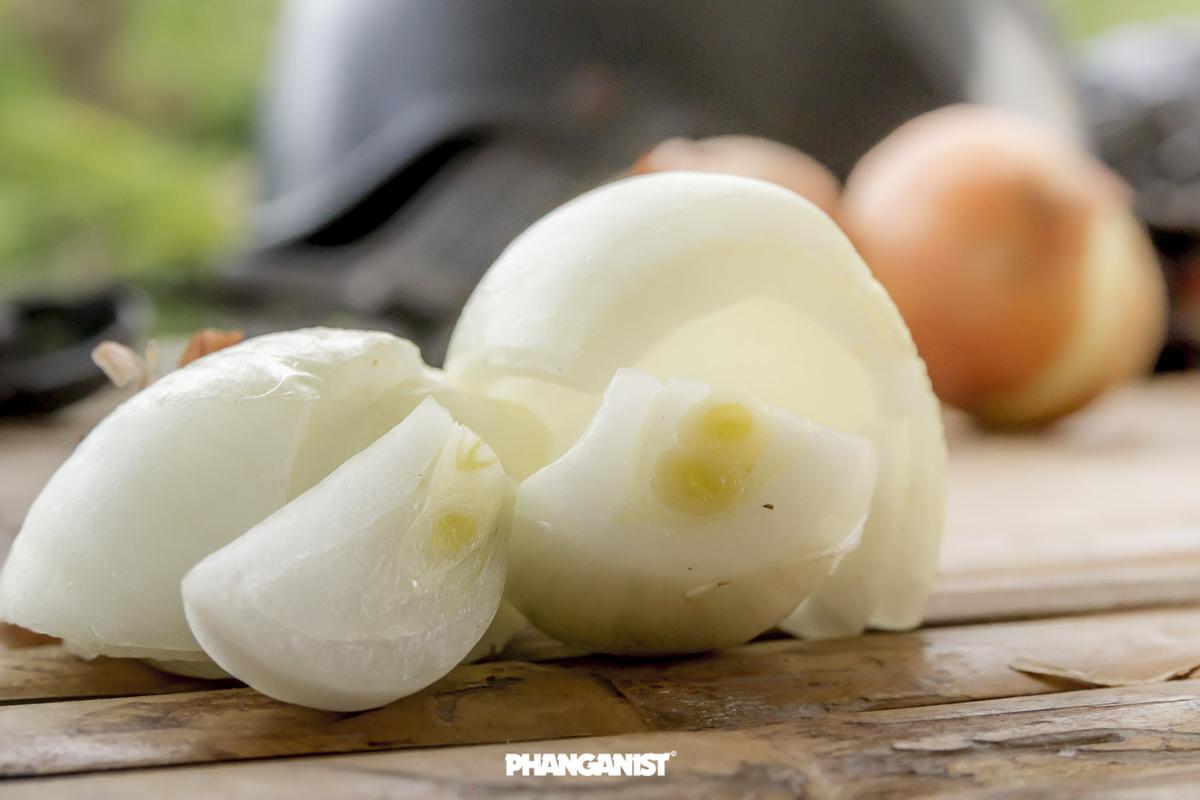It helps people with diabetes, lowers bad cholesterol, serves as a natural antibiotic and contains oxygen so get over the smell and eat a load of onions!
The onion has been a dominant component in foods and kitchens around the world for thousands of years. Demand for it is growing and it is ranked second, after the tomato, as the most most important crop in the
garden.
All chefs or cooks will confirm that if you remove the onions from the kitchen, the pleasure will disappear with it.

Its presence adds fragrance and charm to even a modest meal, it is not possible to cover with any other component, and the taste of gourmet meals will be missing the most invested ingredient.
There are different types of onions: yellow, white, purple and green, each with a unique flavour ranging from spicy to sweet.
You can eat the onion fresh and raw, boiled, fried, dried or baked and it adds flavour to dips, salads, soups, spreads, stir-fries and other foods.
Garlic belongs to the same family as the onion, rich in sulfur components which are responsible for the pungent smell and medicinal properties.
The onion is actually a friendly version of garlic and contains only a quarter of the sulfur in garlic and thus is not as spicy yet still contains all the nutritional benefits of garlic, although to a lesser extent.
Medicinal properties
Onions have sulfur compounds that give onions the unique properties described above and in addition have very good chromium, vitamin C, fiber and other vitamins, minerals and phytochemicals that are beneficial to our health.
Onions contain quercetin, an antioxidant that reduces the contents of free radicals in the body and prevents damage to cells and tissues. While this element is also available with tea and chopped apples but absorbed much higher.
The different colours of various onions provide phytochemicals with unique properties for each colour which includes green onions reducing the effects of free radicals, purple contains anthocyanins which slow down the aging process and white, found in all types of onions which are effective against bacteria and infections.

The health benefits of onions
Diabetes
The sulfur compounds lead to lower blood sugar. It increases the level of insulin to transport glucose available to cells and thus lowers the blood sugar level.
Chromium levels in the body are emptied from eating refined sugar and white flour so don’t eat so much of these, eat onions instead!
Heart Disease
Onions aid in lowering bad cholesterol whilst raising the good cholesterol. Sulfur compounds result in lowering the probability of heart disease, stroke, heart disorders and the prevention of hardening of the arteries and lowering blood pressure.
Onions simulate the action of aspirin and similar blood thinning and dissolving blood clots.
Viruses and infections
Onions are a natural antibiotic used against bacteria (like extollation, Salmonella, E. coli, etc.), intestinal worms, viruses and colds.
Onions are recommended for the treatment of phlegm and coughing. They can reduce swelling in arthritis and reduces the impact of causes of asthma.
Also onion leaves contain chlorophyll which has an additional effect on cleansing the blood and strengthen the immune system.

Chronic diseases
Contains antioxidants that fight free radicals in the body and therefore reduces the probability of cancer diseases by destruction of tumor cells.
Among these elements are different phytochemicals including quercetin which decreases the probability of developing colorectal, ovarian cancer and prostate cancer.
Earaches
Onion extract and the juice of the onion dropped into the ear gently can relieve earaches.
Swelling, sores and inflammation in joints
A mixture consisting of chopped onion and salt leads to lower swelling and ease of pain if applied to the wound or swelling.
Hoarseness and sore throat
Removes phlegm, expectorant and excellent cure for diseases of the respiratory tube, like hoarseness and a persistent cough.
Gynecology
Can help relieve menstrual cramps.

There are some cons to the humble onion though...
(Things to bear in mind if you want the best out of your onion!)
Food processing
To reduce its sharpness to suit different foods and to give it various flavours, onion is often put through different food processing such as cooking, baking, frying or roasting.
When going through these processes the onion can lose some of its components, as well as their effects on our blessed health.
Also, the onion tends to absorb oil in bulk and thus increases the calorie content and fat content in the finished dish.
The smell
If you decide to absorb most of the qualities of the onion and eat it fresh, you probably won’t want to eat it around anyone else and even you may not find it very pleasant.
This is also one of the consequences of the sulfur compounds. Chewing parsley sprigs might definitely facilitate and refine the intensity of the smell for you though!

The tear factor
When cutting onions, sulfuric compounds are unstable and therefore disintegrate and create a byproduct: a gas called syn-propanethial-S-oxide.
When this gas coincides with water (e.g. the eyes) it creates sulfuric acid that causes burning. Tears are an irrational response of the body to eradicate these distractions.
Cooling the onion before cutting and using a wet knife can help reduce the amount of gas.
Summary
The onion, with its unique characteristics also serves as inspiration and basis of meanings and symbols.
Glass onion is a song by the Beatles in which the onion is used as a metaphor through which we can see things as real and understand the way of life of people different from us.
What is important is to take advantage of the health benefits: for the sake of taste, cook it as you wish, but do not give up on integration of eating it raw and fresh.
Onion the medicine, natural, delicious and full of virtues.
































